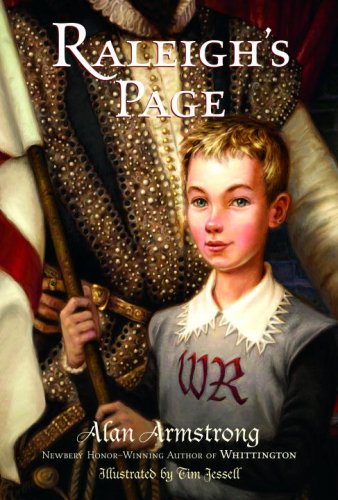Raleigh’s Page
Andrew Saintleger is twelve, old enough to be apprenticed. His father writes to a childhood friend, the now-famous sea captain, Walter Raleigh, to ask if he will take the boy as a page. Soon Andrew is on his way from Plymouth to London. Mr. Saintleger calls Raleigh’s London home “The College of the New World,” and so it proves to be. Andrew learns Mercator’s new geography, as well as practical skills such as making medicines, swimming, seamanship, and how to make invisible ink. He also uses knowledge he already has, helping the gardener maintain a nursery of mysterious New World plants.
As he gains his master’s confidence, he participates in Raleigh’s intrigues, and copies maps “borrowed” from the Spanish ambassador. Their eventual voyage to Virginia is Andrew’s dream come true, but life in the plantation is difficult. The Indians are initially welcoming, so the boy makes friends and learns their language. When greed destroys the peace, Andrew shares in the struggle for survival that follows. Historical fiction like this is useful in a classroom setting, but the sharp contrast between Andrew’s daily existence and that of a modern child’s might be even more instructive.










